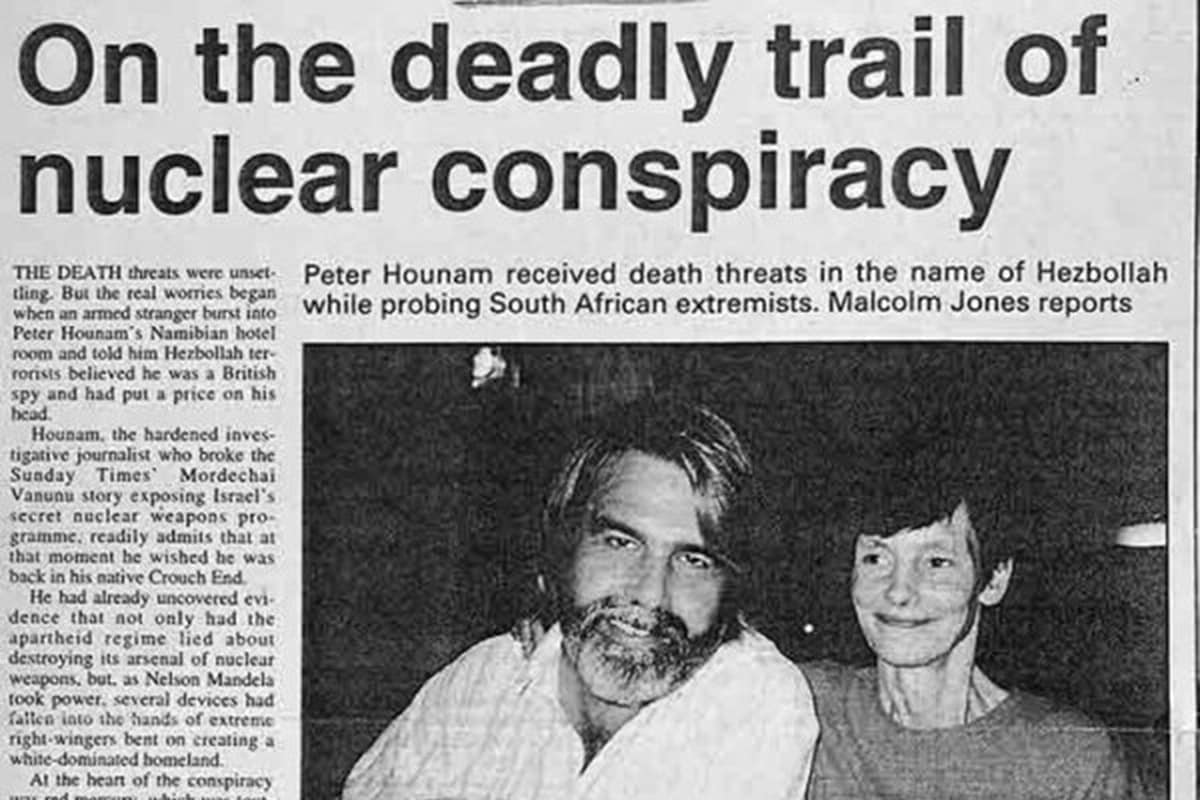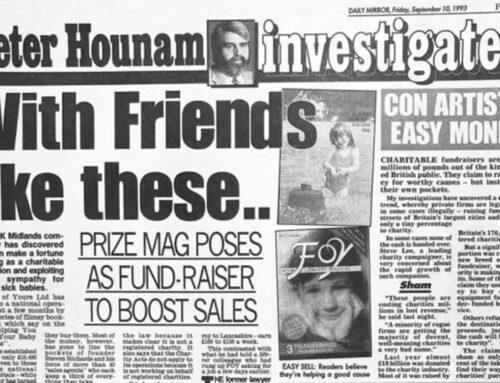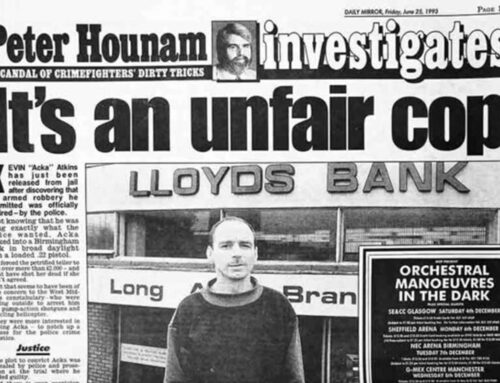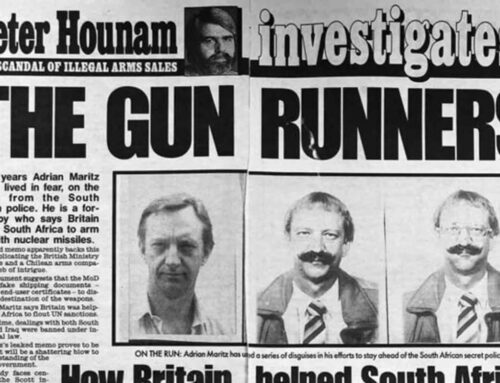On The Deadly Trail Of Nuclear Conspiracy

Ham & High, Friday, October 27, 1995
Peter Hounam received death threats in the name of Hezbollah while probing South African extremists. Malcolm Jones Reports
THE DEATH threats were unsettling. But the real worries began when an armed stranger burst into Peter Hounam’s Namibian hotel room and told him Hezbollah terrorists believed he was a British spy and had put a price on his head.
Hounam, the hardened investigative journalist who broke the Sunday Times’ Mordechai Vanunu story exposing Israel’s secret nuclear Weapons programme, readily admits that at that moment he wished he was back in his native Crouch End.
He had already uncovered evidence that not only had the apartheid regime lied about destroying its arsenal of nuclear weapons, but, as Nelson Mandela took power, several devices had fallen into the hands of extreme right-wingers bent on creating a white-dominated homeland…
THE DEATH threats were unsettling. But the real worries began when an armed stranger burst into Peter Hounam’s Namibian hotel room and told him Hezbollah terrorists believed he was a British spy and had put a price on his head.
Hounam, the hardened investigative journalist who broke the Sunday Times’ Mordechai Vanunu story exposing Israel’s secret nuclear Weapons programme, readily admits that at that moment he wished he was back in his native Crouch End.
He had already uncovered evidence that not only had the apartheid regime lied about destroying its arsenal of nuclear weapons, but, as Nelson Mandela took power, several devices had fallen into the hands of extreme right-wingers bent on creating a white-dominated homeland.
At the heart of the conspiracy was red mercury, which was touted as a raw material for nuclear weapons, despite official denials that it even existed. Huge sums were involved in the trade and the stakes were so high several would-be dealers had been found murdered. Hounam, a 51-year-old father- of-three, who has worked for the Sunday Times and the Daily Mirror and researched documentaries for Channel 4’s Dispatches series and the BBC’s Panorama, first travelled to South Africa in August last year to begin investigating stories of red mercury and associated murders.
As the last vestiges of the apartheid regime’s reign of fear and duplicity fell away, he found scientists, police officers, intelligence agents and even arms dealers sufficiently concerned to talk.
Working on the story with Hounam was Steven McQuilan, a Yorkshireman with a track record in investigative journalism, who was working at The Star in Johannesburg. Hounam, originally from Teesside, found they worked well together, sharing a sense of humour, as well as dogged determination.
Their investigation had already uncovered a string of murders apparently linked to the black market in nuclear weapons. But things turned really nasty when Hounam followed the red mercury trail from South Africa into Namibia.
The telephone in his hotel room rang at midnight and a Middle Eastern voice warned he was in great danger unless he left Namibia. Minutes later there was a knock at the door and an agitated South African intelligence agent informed Hounam that Hezbollah had put a contract out on him. The pro-Iranian terrorist group was trying to buy red mercury and believed Hounam was an M16 agent, said the armed South African, who stood guard for the rest of the night until Hounam was whisked off to the airport the next morning for a flight to Johannesburg.
Whether the calls were idle threats from someone who simply wanted Hounam out of Namibia, which was rumoured to be the epicentre of red mercury dealing, or from those behind other killings, remains a mystery.
“It was a very worrying moment and I did think at that moment that perhaps I was getting too old for all this.
“But I am a very inquisitive sort of guy and felt we had a duty to carry on. Perhaps stupidly, I was never tempted to give it up.
“We thought that if we took the right precautions, checking under the car, seeing if we were being followed and being careful on the telephone, we would be okay. After all, it was a great story.”
The results of the investigation were published on Monday in Hounam and McQuillan’s book The Mini-Nuke Conspiracy, Mandela’s Nuclear Nightmare, which claims
white extremists are preparing to hold South Africa to nuclear ransom to secure a white homeland.
“Nelson Mandela said on Friday that he would have to investigate if these were well-founded concerns. And I think the book may encourage South African journalists to publish what they have found out but were not confident enough to print.
“I did the Sunday Times story about Vanunu and the Israeli nuclear programme. But I think this is far more worrying because of the fears that nuclear weapons are in the hands of extreme right- wingers.
“They have threatened that unless they get a white homeland by next spring their threat of a coup will be resumed. “Whether that threat involves taking up arms with rifles and artillery or nuclear weapons, who knows?”








